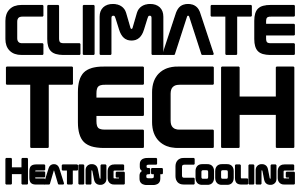Air Conditioning Repair and Replacement Information
Air conditioning repair is fast becoming the route homeowners take before rushing out and buying a new air conditioner replacement. Two thirds of all American homes have air conditioning which uses about 5% of all the electricity produced in the U.S. and amounts to a cost of over $11 billion to homeowners. Switching to a high-efficiency air conditioning system along with other actions can help you reduce your energy use by up to 45% or more.Energy Efficient Air Conditioners
An air conditioner's energy efficiency is rated by the Seasonal Energy Efficiency Ratio (SEER rating) and the higher the SEER rating, the more efficient the air conditioner is. The SEER rating is calculated by taking the BTU of cooling output during the air conditioner's normal annual usage divided by the total electrical energy input during the same period. With more and more modern air conditioning systems in homes and offices in the U.S., it's fairly uncommon to have a unit whose SEER rating is below 9.
What does this mean for a typical homeowner?
The United States now requires that every residential central air conditioning system manufactured after 2006 have a minimum SEER rating of 13. In almost every case, when a high energy-efficient air conditioner is installed, the savings over the life of the air conditioner will far outweigh the initial cost. So what are you waiting for? Contact Climate-Tech for a quote on a new high-efficiency air conditioner and "stay cool this summer!"
Central Air Conditioning
Central air conditioning is either a split-system unit or packaged unit (mostly used in commercial or industrial environments). In split-system air conditioning, an outdoor metal cabinet houses the air conditioner condenser and compressor, and an indoor unit contains the evaporator and also contains a furnace or the indoor part of the heat pump. The air conditioner's evaporator coil is installed in the cabinet or main supply duct of this furnace or heat pump. If your home already has a furnace but no air conditioner, a split-system is the most economical central air conditioner to install.
Climate-Tech Heating and Cooling recommends central air conditioning over a room or window unit because they are more effective, quiet and out of the way, and convenient to operate. To save even more money on operating costs, you should look for an “energy-efficient” air conditioner. This will reduce the amount of energy required to operate your air conditioner and save you money on your monthly energy bill. If you are considering adding central air conditioning to your home, the deciding factor may be the need for ductwork.
If you have an older central air conditioner, you might choose to replace the outdoor compressor with a modern, high-efficiency air conditioning unit. If you do so, be sure to contact Climate-Tech Heating and Cooling - we’ll make sure that the new compressor is properly matched to the indoor unit. However, considering recent changes in refrigerants and air conditioning designs, it might be wiser to replace the entire system.
The best modern air conditioners use up to 50% less energy to produce the same amount of cooling as air conditioners made in the mid-1970s. Even if your air conditioner is only 10 years old, you may save 20%–40% of your cooling energy costs by replacing it with a high-efficiency air conditioner.
Remember, size and installation is vital in determining air conditioner efficiency. If your air conditioner is too small, it may not be able to cool your home evenly during a hot Michigan summer, and improper installation can also diminish the air conditioner’s efficiency. To be sure your air conditioning is installed by professionals, call Climate-Tech Heating and Cooling. We’re proud to provide quality air conditioning repair and replacement in Ann Arbor, Ypsilanti, and many other Washtenaw and western Wayne County communities including Superior Township, Milan, Saline, Canton, Belleville, Westland, and more.

